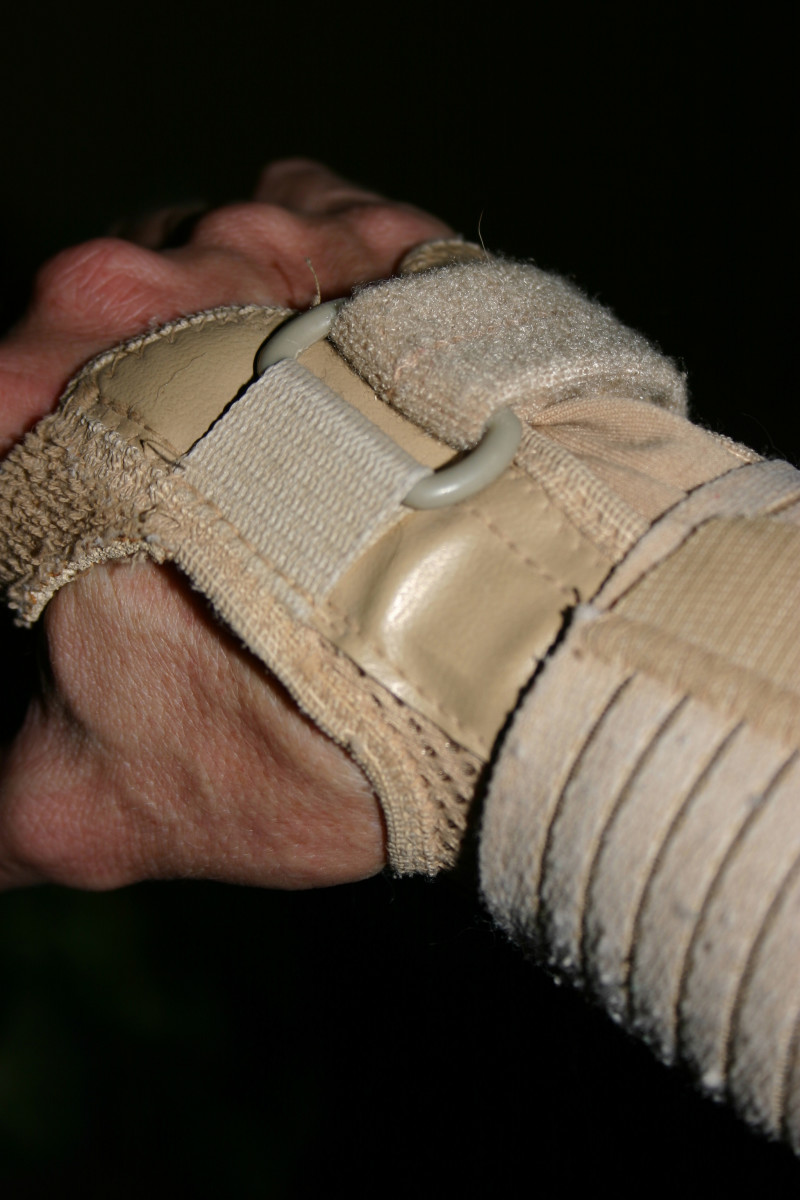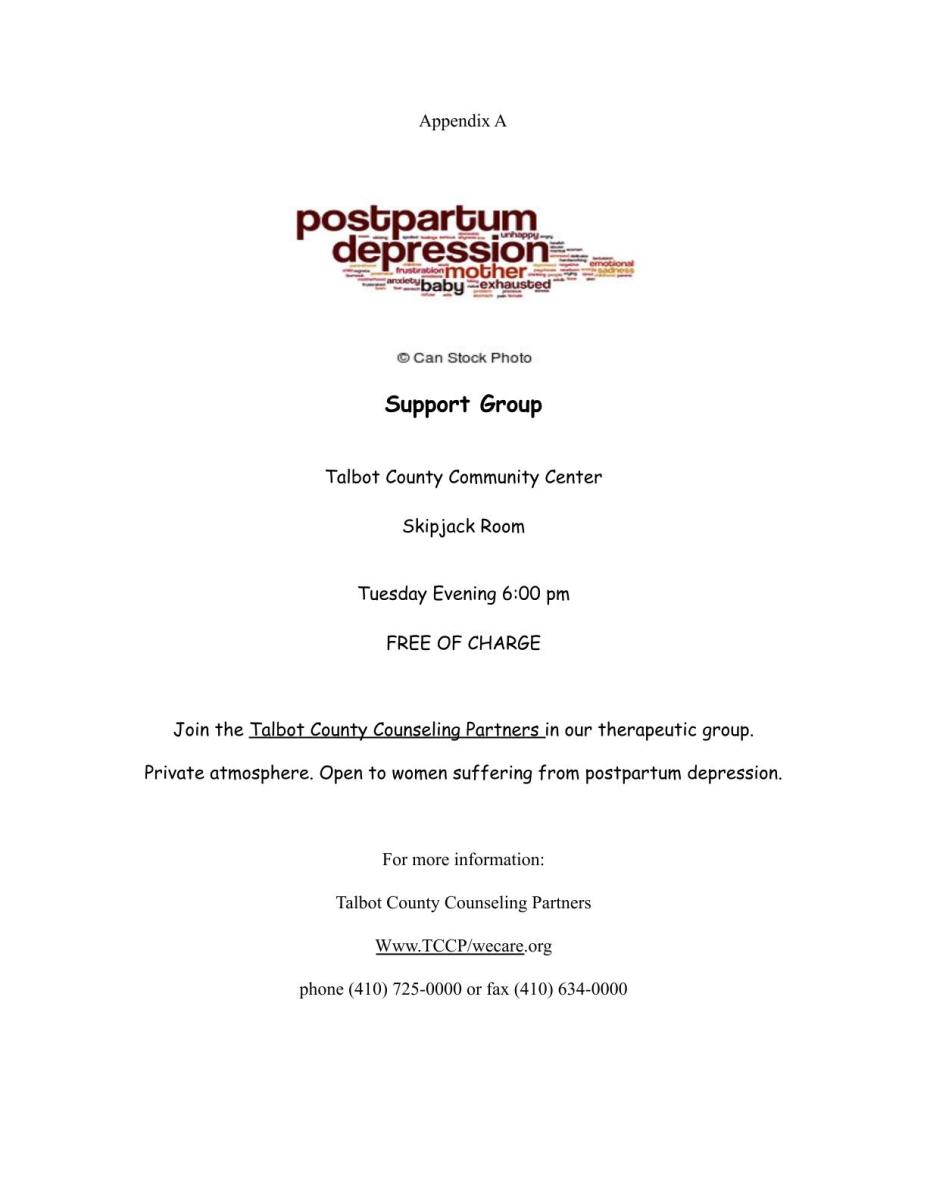- HubPages»
- Health»
- Mental Health»
- Clinical Depression
Natural Treatments for Postpartum Depression
Signs and symptoms of postpartum depression
It is normal to feel low and even depressed after childbirth. It can pass by fleetingly as postnatal blues on about the third day after the birth when your milk comes in, or span a longer period while your hormones sort themselves out and you begin to make the emotional adjustments to your new life. We all have different resources for dealing with the stresses of birth and parenthood: it’s a mistake to assume that because you have been through a difficult birth that you will feel depressed - just as it’s a mistake to assume you shouldn’t be depressed because things haven’t been that bad.
Listen to those you love and trust if they tell you that you are looking (and sounding) low–post-natal depression which lasts longer than a few days always needs the help of competent professionals: your doctor, a counselor or psychotherapist and/or a homeopathic practitioner. Don’t ignore your distress by telling yourself (or others) that it isn’t that bad, or that other women have far worse to cope with, or you’ll get over it. Remember it is a sign of strength to ask for help, not a sign of weakness.
Seek the help of a counselor or psychotherapist to help heal and integrate a particularly difficult birth experience if you are in distress and finding it difficult to bond with your new baby and/or reconnect with your partner, especially if you are suffering from two or more of the following:
- you feel separate from everybody and everything ... if there is an unpleasant feeling of distance an unreality that affects your life.
- you cannot feel the floor or pavement solidly under your feet–it is as if you are not connected or are sort of floating.
- you suffer from inexplicable or overwhelming fears and worries.
- you feel repeatedly angry with your baby.
- you feel apathetic and indifferent i.e. nothing matters and what is the point anyway.
- you feel cut off and unable to respond to your partner or the baby.
- your sense of time has changed–everything seems to take a long time, even small tasks.
- you feel tired a lot the time and find it difficult to sleep at night, waking unrefreshed and joyless. Post-natal depression can be mistaken for exhaustion, so if you are dragging yourself around and not sleeping well, or lacking in energy however much rest you get, you may be depressed

How to take care of yourself after birth
- eat well–plenty of fresh foods and protein. Many women find that eating little and often suits them better at this time.
- invest in a Fast Food Cookbook and learn how to cook healthy meals in minutes.
- drink plenty of (sugar- and caffeine-free) fluids, especially if you are breastfeeding.
- only do those chores that are absolutely necessary–delegate as many as you can (and farm out household chores for the first 6-12 weeks, especially if you had a Caesarean.) Remember, the housework will always be there, your baby is only little once!
- reassess your priorities: these will change with each baby that comes along–the more children you have the more demands on your time and energy, especially emotional energy. A contented mother and baby are much, much more important than a tidy house or a 3-course meal.
Rest relax recharge
- sleep at night, nap when your baby naps–or at least rest.
- take some gentle exercise (in the fresh air if possible) every day, this will help your body to recover faster and create energy.
- do the relaxation or meditation technique that you learnt in pregnancy once a day.
- have a facial or haircut (at home if you can arrange this).
- vary your daily activities with your new baby so that you don’t get bored.
- arrange to spend time each week with a friend doing easy, fun things not associated with work or parenthood.
- do something just for yourself every day (without the baby): take a bath or shower, sit on your own with a cup of tea, write a letter to a friend, read a magazine or a book–even if it is for ten minutes.
Mothers with special needs
Babies come in all shapes and sizes: some are quiet and easy-going, others are needy and demanding. All babies are time-consuming–it is more than a full time job, you will be on call 24 hours a day for an indefinite period of time, and this in itself can leave many women feeling completely exhausted. In addition, this job may be one for which you little or even no preparation or training or former experience! Some women have never even held a baby until they hold their own. This makes the job a serious challenge!
Reach out to the support network you set up during your pregnancy–or create one–ask your social worker, GP, midwife, homeopath for local groups and help lines. Use your telephone support system if you don’t have close friends or family living nearby. Make contact with at least one other mother and baby so that you can talk about yourself and your baby and not feel isolated with your small charge. Every new mother needs support–it helps ease the passage into parenthood, and is especially important if you fall into one of the categories below:
- you have a demanding baby, or a baby with special needs of any sort i.e. a premature baby, a sick or disabled baby, one with colic or one who sleeps during the day but not at night.
- you are a single parent, or your partner is absent or sick, and especially if you have no close friends or relatives close by who can help out in the early months.
- this is your first baby–especially if you are a very young mother.
- you are having difficulties with breastfeeding.
- you have one or more other children, especially if they are very young as two babies in nappies can be a real handful.
- you need to return to work within a few weeks or even a few months, especially if you are an older mother.
- you suffered a lot of stress in your pregnancy, such as moving house or a bereavement or an unexpected change in circumstances.
- your own health is poor.
- you had a difficult birth and have found it difficult to recover–i.e. if you are exhausted and still in pain.
- you are struggling financially.
Healing after birth
Don’t fall into the trap of sweeping your distress, your complaints under the carpet while you attend to your baby and her needs. Mothers have needs too, make sure that yours are met and you will find you will recover from the stress of the birth faster and it will make the job of parenting easier.
There are many complementary (alternative) therapies that can help with the emotional roller coaster of that post natal period: acupuncture can help with emotional and physical complaints; the healing power of herbs can help with balancing hormones and general healing; homeopathy can help with emotional and physical problems in both mothers and babies and with breastfeeding difficulties; cranial osteopathy is a gentle physical therapy that can balance the body (mothers and the baby) after a difficult labour or where mothers feel achy and ‘out of sorts’; the therapeutic value of massage is well known – an aromatherapy massage is especially delicious for new mothers and can be very healing, as can a reflexology massage.
Choose a therapy that seems right for you and your needs. Ask your GP or health provider to refer you to a practitioner who is registered with a recognized organization.








